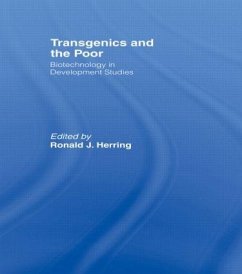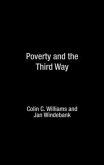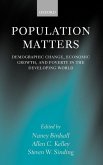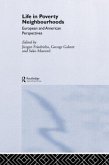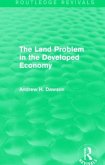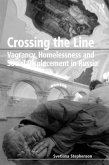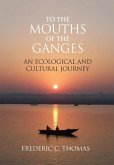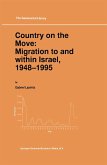Ronald J. Herring (ed.)Biotechnology in Development Studies
Transgenics and the Poor
Biotechnology in Development Studies
Herausgeber: Herring, Ronald J
Ronald J. Herring (ed.)Biotechnology in Development Studies
Transgenics and the Poor
Biotechnology in Development Studies
Herausgeber: Herring, Ronald J
- Gebundenes Buch
- Merkliste
- Auf die Merkliste
- Bewerten Bewerten
- Teilen
- Produkt teilen
- Produkterinnerung
- Produkterinnerung
In this much-needed book, an emergent empirical literature allows scholars in disciplines ranging from micro-biology to economics to assess the potential effects of transgenic organisms on poverty.
Andere Kunden interessierten sich auch für
![Poverty and the Third Way Poverty and the Third Way]() Colin C. Williams / Jan Windebank (eds.)Poverty and the Third Way179,99 €
Colin C. Williams / Jan Windebank (eds.)Poverty and the Third Way179,99 €![Population Matters Population Matters]() Nancy Birdsall / Allen C. Kelley / Steven Sinding (eds.)Population Matters81,99 €
Nancy Birdsall / Allen C. Kelley / Steven Sinding (eds.)Population Matters81,99 €![Life in Poverty Neighbourhoods Life in Poverty Neighbourhoods]() Jurgen Friedrichs / George Galster / Sako Musterd (eds.)Life in Poverty Neighbourhoods179,99 €
Jurgen Friedrichs / George Galster / Sako Musterd (eds.)Life in Poverty Neighbourhoods179,99 €![The Land Problem in the Developed Economy (Routledge Revivals) The Land Problem in the Developed Economy (Routledge Revivals)]() Andrew H DawsonThe Land Problem in the Developed Economy (Routledge Revivals)120,99 €
Andrew H DawsonThe Land Problem in the Developed Economy (Routledge Revivals)120,99 €![Crossing the Line Crossing the Line]() Svetlana StephensonCrossing the Line180,99 €
Svetlana StephensonCrossing the Line180,99 €![To the Mouths of the Ganges To the Mouths of the Ganges]() Frederic C ThomasTo the Mouths of the Ganges39,99 €
Frederic C ThomasTo the Mouths of the Ganges39,99 €![Country on the Move: Migration to and Within Israel, 1948-1995 Country on the Move: Migration to and Within Israel, 1948-1995]() Gabriel LipshitzCountry on the Move: Migration to and Within Israel, 1948-1995110,99 €
Gabriel LipshitzCountry on the Move: Migration to and Within Israel, 1948-1995110,99 €-
-
-
In this much-needed book, an emergent empirical literature allows scholars in disciplines ranging from micro-biology to economics to assess the potential effects of transgenic organisms on poverty.
Hinweis: Dieser Artikel kann nur an eine deutsche Lieferadresse ausgeliefert werden.
Hinweis: Dieser Artikel kann nur an eine deutsche Lieferadresse ausgeliefert werden.
Produktdetails
- Produktdetails
- Verlag: Taylor & Francis
- Seitenzahl: 248
- Erscheinungstermin: 1. Juli 2007
- Englisch
- Abmessung: 234mm x 156mm x 16mm
- Gewicht: 526g
- ISBN-13: 9780415380102
- ISBN-10: 0415380103
- Artikelnr.: 23594002
- Herstellerkennzeichnung
- Libri GmbH
- Europaallee 1
- 36244 Bad Hersfeld
- gpsr@libri.de
- Verlag: Taylor & Francis
- Seitenzahl: 248
- Erscheinungstermin: 1. Juli 2007
- Englisch
- Abmessung: 234mm x 156mm x 16mm
- Gewicht: 526g
- ISBN-13: 9780415380102
- ISBN-10: 0415380103
- Artikelnr.: 23594002
- Herstellerkennzeichnung
- Libri GmbH
- Europaallee 1
- 36244 Bad Hersfeld
- gpsr@libri.de
Ronald Herring is Professor of Political Economy in the Department of Government at Cornell University, where he has been Director of the Mario Einaudi Center for International Studies, the John S. Knight Professor of International Relations, Chair of the Department of Government and Acting Director of Cornell's South Asia Program. Before Cornell, he was Professor of political science at Northwestern University and taught briefly at the Universities of Chicago, Texas, Washington, and Wisconsin. Herring has been Editor of Comparative Political Studies, and remains on its editorial board, as on the boards of Contemporary South Asia, Critical Asian Studies, Journal of Development Studies and India Review. His earliest academic interests were with land relations; Land to the Tiller: The Political Economy of Agrarian Reform in South Asia (Yale University Press/Oxford University Press) won the Edgar Graham Prize (London l986). He has recently explored connections between economic development and ethnicity -- Carrots, Sticks and Ethnic Conflict: Rethinking Development Assistance (University of Michigan Press, edited with Milton Esman). Herring is currently Director/Convener of the Program on Development, Governance and Nature at Cornell University.
1. The Genomics Revolution and Development Studies 2. Plant Breeding and
Poverty From GR to GM 3. The Impact of Agricultural Biotechnology on
Yields, Risks and Biodiversity in Developing Countries 4. The Potential of
Genetically Modified Food Crops to Improve Human Nutrition and Health in
Developing Countries 5. Considerations on the Use of Transgenic Crops for
Insect Control 6. Transgenic Crops 7. Stealth Seeds 8. Loose Seeds,
Official Seeds, and Risk 9. Identity Preservation, Market Effects and
Developing Countries 10. Agroecological Alternatives 11. Supplying Crop
Biotechnology to the Poor
Poverty From GR to GM 3. The Impact of Agricultural Biotechnology on
Yields, Risks and Biodiversity in Developing Countries 4. The Potential of
Genetically Modified Food Crops to Improve Human Nutrition and Health in
Developing Countries 5. Considerations on the Use of Transgenic Crops for
Insect Control 6. Transgenic Crops 7. Stealth Seeds 8. Loose Seeds,
Official Seeds, and Risk 9. Identity Preservation, Market Effects and
Developing Countries 10. Agroecological Alternatives 11. Supplying Crop
Biotechnology to the Poor
1. The Genomics Revolution and Development Studies 2. Plant Breeding and
Poverty From GR to GM 3. The Impact of Agricultural Biotechnology on
Yields, Risks and Biodiversity in Developing Countries 4. The Potential of
Genetically Modified Food Crops to Improve Human Nutrition and Health in
Developing Countries 5. Considerations on the Use of Transgenic Crops for
Insect Control 6. Transgenic Crops 7. Stealth Seeds 8. Loose Seeds,
Official Seeds, and Risk 9. Identity Preservation, Market Effects and
Developing Countries 10. Agroecological Alternatives 11. Supplying Crop
Biotechnology to the Poor
Poverty From GR to GM 3. The Impact of Agricultural Biotechnology on
Yields, Risks and Biodiversity in Developing Countries 4. The Potential of
Genetically Modified Food Crops to Improve Human Nutrition and Health in
Developing Countries 5. Considerations on the Use of Transgenic Crops for
Insect Control 6. Transgenic Crops 7. Stealth Seeds 8. Loose Seeds,
Official Seeds, and Risk 9. Identity Preservation, Market Effects and
Developing Countries 10. Agroecological Alternatives 11. Supplying Crop
Biotechnology to the Poor

